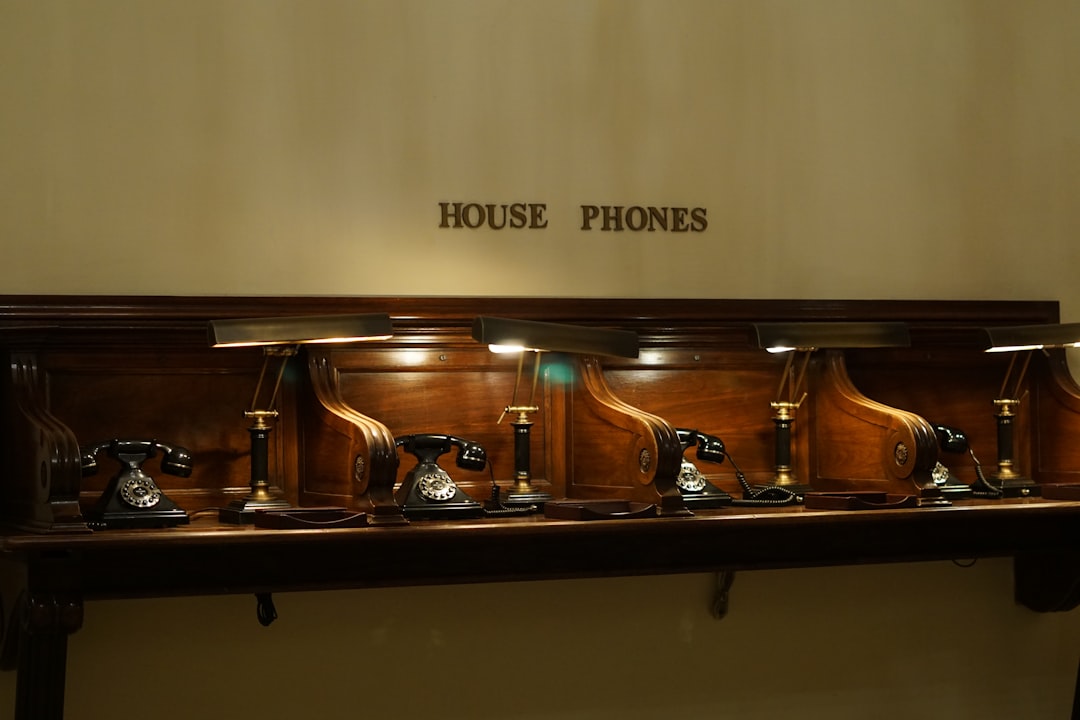The Telephone Consumer Protection Act (TCPA) of 1997 has drastically changed telemarketing in the US, especially in California. This act grants consumers control over their phone lines with strict rules for telemarketers and limitations on unwanted calls, particularly from law firms. Key landmark cases in California have reshaped national telemarketing laws and consumer protection, emphasizing prior consent for marketing calls and the importance of "Do Not Call" lists. High-profile lawsuits against telecommunications companies have prompted businesses to adopt more responsible practices, respecting consumer privacy and preferences. California's "Do not call" lawyers and law firms play a crucial role in defending consumer rights and educating businesses about TCPA compliance.
“Unwanted telemarketing calls—a nuisance many face daily. But what if these calls could be reduced through legal measures? The Telephone Consumer Protection Act (TCPA) has been a game-changer in this regard. This article delves into the historical context of TCPA and its profound impact on telemarketing practices nationwide. From landmark cases that birthed ‘Do Not Call’ lists to high-profile lawsuits, we explore how these events shaped the industry. If you’re seeking guidance as a consumer or business owner, consider a top-rated Do Not Call lawyer in California—expertise is just a call away.”
The TCPA: A Historical Overview and Its Impact on Telemarketing

The Telephone Consumer Protection Act (TCPA) is a landmark piece of legislation that has significantly reshaped telemarketing practices across the nation, with its impact most notably felt in California. Enacted in 1997, the TCPA aims to protect consumers from intrusive and unwanted telephone solicitations by establishing strict rules for telemarketers. It has been instrumental in empowering individuals to control their phone lines, preventing harassing calls, and promoting fair business practices.
This act introduced crucial regulations such as the requirement for prior express consent before making automated or prerecorded calls, limiting robocalls, and mandating opt-out mechanisms. Consequently, many “Do not call” lists were established, allowing Californians to register their phone numbers and prevent unsolicited calls from various sources, including law firms and attorneys. The TCPA’s influence has led to a more transparent and consumer-friendly telemarketing environment, with lawyers and legal firms in California adhering to these rules to avoid potential penalties for violating privacy rights.
Landmark Cases: When Do Not Call Lists Were Born

In the early 2000s, a series of landmark cases emerged from California courts that forever altered the landscape of telemarketing laws and consumer protection. These cases, brought by conscientious do not call lawyers in California, led to the birth of robust do not call lists across the nation. The pivotal moments included historic rulings against telemarketers who violated consumers’ privacy, with judgments emphasizing the importance of obtaining prior consent for marketing calls.
The decisions from California courts set a precedent, forcing industries nationwide to reevaluate their telemarketing practices. As a result, many do not call law firms in California gained recognition for their role in protecting consumer rights. Today, these cases serve as a stark reminder that do not call lists are an essential tool for respecting consumers’ preferences and preventing unwanted marketing calls, with far-reaching implications even beyond California’s borders.
High-Profile Lawsuits and Their Effect on Industry Practices

High-profile lawsuits have significantly shaped telemarketing practices across the nation, with notable cases in California serving as game changers. One such instance involves a Do Not Call lawsuit against a major telecommunications company, where consumers alleged violations of the Telephone Consumer Protection Act (TCPA). The case resulted in a substantial settlement and prompted the company to overhaul its marketing strategies, ensuring strict adherence to consumer preferences. This set a precedent for other businesses, encouraging them to implement more robust opt-out mechanisms and better respect consumer privacy.
The impact extended beyond individual companies; it influenced industry standards as a whole. Many Do Not Call lawyer firms in California, specializing in TCPA cases, emerged as trusted advisors, helping businesses navigate this evolving legal landscape. These attorneys played a crucial role in educating companies about the nuances of the TCPA, ensuring compliance, and mitigating potential risks. As a result, nationwide, telemarketers started employing more sophisticated methods to verify consent and honor consumer requests to stop calls, fostering a more responsible and respectful industry.
Lessons Learned: How These Cases Shaped Telemarketing Today

The landmark TCPA cases have profoundly reshaped telemarketing practices nationwide, offering valuable lessons for businesses and legal professionals alike in California and beyond. Through these suits, the public has gained greater control over unwanted phone calls, with strict regulations now in place to protect consumers from aggressive or unsolicited marketing. Key takeaways include the importance of obtaining explicit consent before placing automated calls and the need for clear, concise, and transparent messaging to avoid misleading prospects.
Moreover, these cases have underscored the significance of comprehensive training for telemarketing staff and robust internal protocols to ensure compliance with TCPA standards. Businesses now must carefully consider their call scripts, timing, and frequency, ensuring they respect consumer preferences and privacy rights. For California residents facing unwanted calls, understanding these legal developments empowers them to take action, consult a qualified Do Not Call lawyer, or legal firm, and seek resolution if their rights are violated.






